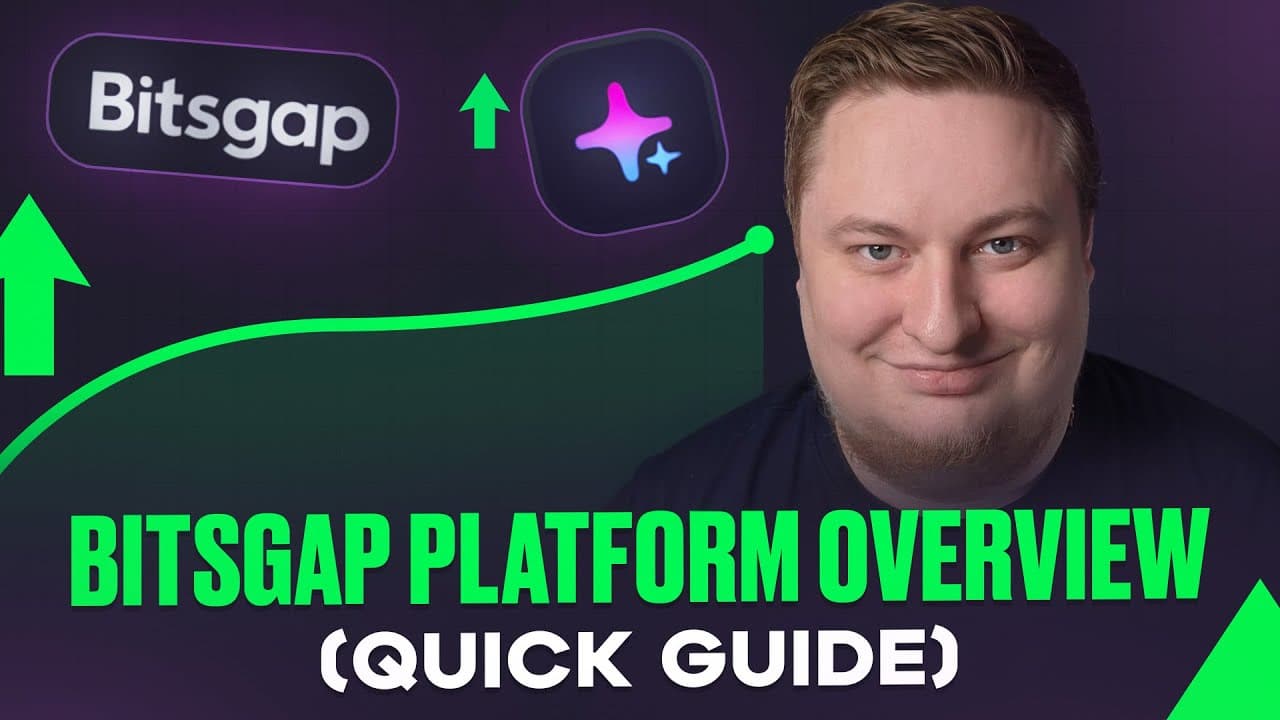Limit Order
Your Edge in
Feature-rich terminal that delivers an exceptional user experience
A Full Suite for Advanced Crypto Traders
Bitsgap offers advanced trading tools to manage assets and track
performance
across multiple exchanges from a single dashboard.
Unified multi-exchange interface
Trade on 15+ exchanges in one workspace
Access all exchange features (order types/position mode/margin mode)
Switch between exchanges in one click
Spot market features
Track asset purchase prices
Advanced order types: TP, SL, Trailing, and OCO
Effortless spot-futures pair hedge monitoring
Technicals widget
Overview of key technical indicators within the terminal
Simplified decision-making for entry and exit points
Risk-Free Demo Trading Mode
Practice strategies without financial risk
Test trading ideas in real-time market conditions
Learn the platform’s interface and tools
Build confidence before committing real capital
Track and analyze performance to refine your approach
Switch between Live and Demo modes in one click
Trade Crypto Smarter
Master cryptocurrency trading using limit, market, TWAP, scaled, stop market, and stop limit orders. Enhance efficiency and minimize risks.
Limit Orders
- Buy or sell at a specific price or better
- Control your entry and exit points
- Manage costs
- Reduce slippage in volatile markets
TWAP (Time-Weighted Average Price)
- Break large trades into smaller parts executed over time
- Minimize market impact
- Achieve better average prices for large volume trades
Scaled Orders
- Divide a large order into smaller portions at different price levels
- Enter or exit positions gradually
- Improve your average price
- Reduce market impact
Market Orders
- Execute immediately at the best available price
- Prioritize speed of execution over price
- Ensure your trade is filled quickly
Stop Market Orders
- Trigger a market order when a specified price is reached
- Limit losses/protect profits by automatic execution
Stop Limit Orders
- Combine features of stop and limit orders
- Triggering a limit order when a stop price is reached
- Have more control over price (but not execution)
800,000+ Happy Traders & Counting
Bitsgap was one the first to automate crypto trading before it became a trend.
Our users have launched more than 4.7 million bots by now.
- $9.46B
- User funds under
management - 11%
- Average profit 30d
return — Grid Bot - $203M
- Total one-year
bot profit
Connect All Your Exchanges in Seconds
Link up 15+ top crypto exchanges in one interface.
Look What Others Say
Secure. Fast. Easy.
- Your funds are secure
- Bitsgap doesn’t have access to funds on your exchange and cannot withdraw them.
- API key is all you need
- Simply connect your exchange account using a secure API connection and get started.
- Fast trading servers
- Our servers are located close to popular exchanges to ensure stable and fast order execution.
Dive Deeper
From latest updates to in-depth guides, we cover it all in our blog.
FAQ
A limit order allows you to specify the maximum price you’re willing to pay when buying, or the minimum you’ll accept when selling an asset. When placing a buy limit order, the asset will only be purchased at your set limit price or lower, whereas a sell limit order guarantees that your asset will be sold at the limit price you’ve determined or at a higher price.
Limit orders are tailored to meet various trading strategies and preferences for risk management.
Common varieties include: Standard Limit Order, Stop-Limit Order, Immediate or Cancel (IOC) Order, Fill or Kill (FOK) Order, Good 'Til Canceled (GTC) Order, Day Order, All or None (AON) Order, Trailing Stop Limit Order, Scaled Order, and Iceberg Order.
On platforms like Bitsgap, you have the option to place several types of limit orders such as the Standard Limit Order, Stop-Limit Order, Trailing Stop Limit Order, and Scaled Order.
The Standard Limit Order is straightforward, allowing you to predetermine the price for buying or selling an asset.
The Stop-Limit Order is a hybrid that activates as a limit order once a certain stop price is hit.
The Trailing Stop Limit Order automatically adjusts its limit price in relation to market fluctuations by a set amount or percentage.
Lastly, the Scaled Order incrementally executes trades at progressively improved prices, facilitating smooth entry or exit from positions.
The value of a limit order is contingent upon the trader’s individual objectives, tactical approach, and the prevailing market atmosphere. For example, should securing a certain price take precedence over the speed of transaction completion, employing a limit order could prove advantageous.
Moreover, for those operating within stringent budgetary limits, a limit order guarantees transactions do not exceed (or fall below) a set price. Additionally, in environments where market prices are prone to rapid and unpredictable changes, limit orders serve as a safeguard against sudden price surges.
Let’s say bitcoin (BTC) is valued at $40,000 and your analysis determines $37,000 is the max you’ll pay.
You place a buy limit order for bitcoin at $37,000. This order is pending until bitcoin’s price falls to $37,000 or below.
If the price drops to $37,000, your order will execute and you’ll buy bitcoin at your limit price. You may even get it cheaper if the market dips more when your order processes.
If bitcoin doesn’t reach $37,000, your order won’t execute and you won’t purchase.
The buy limit order ensures you stick to your $37,000 limit, aligning with your investment goals and bitcoin valuation.
Try Bitsgap’s PRO plan free for 7 days, pick a plan later























